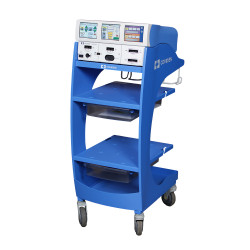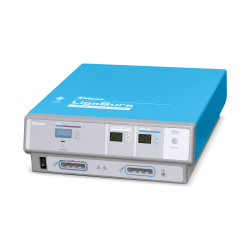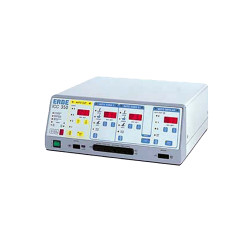ValleyLab Force FX-C ESU
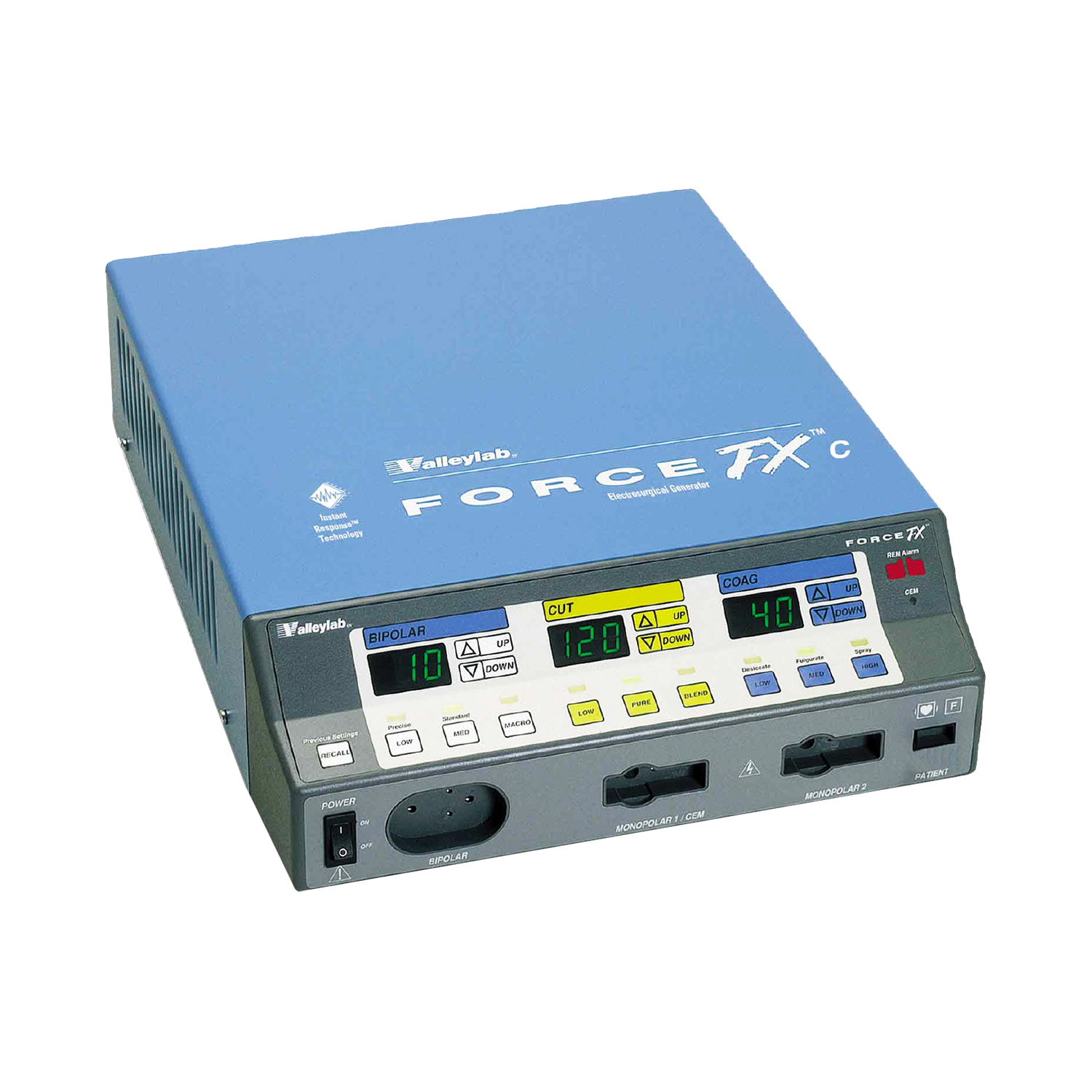

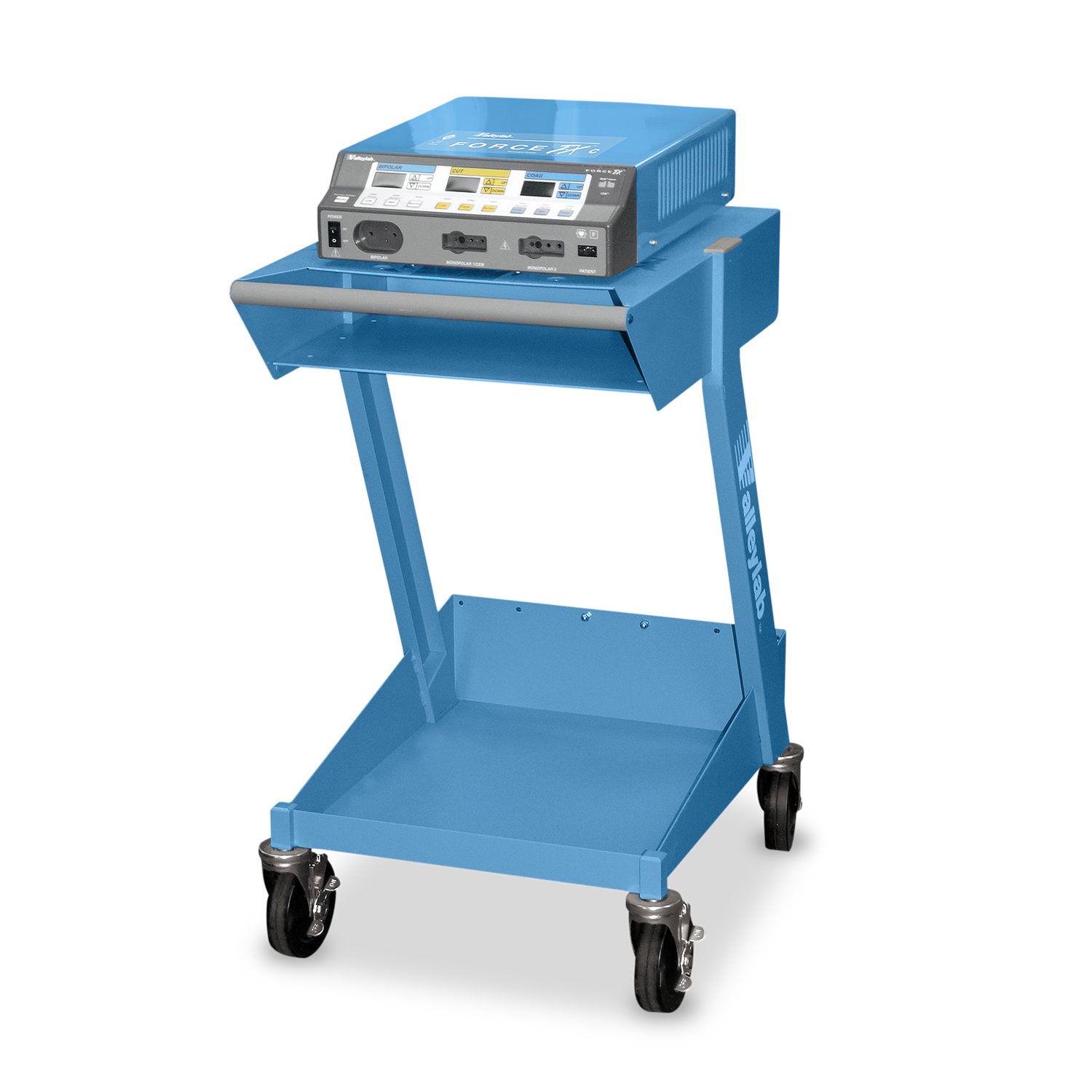
ValleyLab Force FX-C ESU
0 item is in your cart. View cart now
All product and company names are trademarks of their respective holders. Use of them does not imply any affiliation with or endorsement or sponsorship by them.
Details
Instant Response™ Technology
Instant Response™ technology provides surgeons with improved performance at lower power settings, minimizing the risk of tissue damage and neuromuscular stimulation, and decreasing the need to "turn up the generator."
A Smoother Cut Through All Tissue Types
The Force FX™ generator adjusts automatically, responding to tissue changes, maintaining power delivery, and minimizing drag.
Added Safety and Reliability Minimizes Electrosurgical Risks
Capacitive coupling is reduced by 30-50% when using Instant Response™ technology. This reduction is achieved by limiting the RMS voltage and the high frequency harmonics. Lower voltage means less neuromuscular stimulation and more precise delivery of energy to reduce collateral damage.
What is Instant Response™ Technology?
Instant Response™ technology features an advanced feedback system that recognizes changes in tissue 200 times per second, and adjusts voltage and current accordingly to maintain appropriate power. This unique capability differentiates Instant Response™ generators from any other, as shown by their high power efficiency rating (PER). That's smart™ generator technology.
PER indicates the ability of a generator to accurately deliver the selected power into a wide range of tissue types. With a PER of 98, the Force FX™ generator provides a consistent surgical effect and has a higher PER than any other electrosurgical generator.
Instant Response™ Technology provides consistent power through different tissue types.
The Force FX™ generator provides surgeons with the advantage of accurately delivering the selected power setting, even through resistant tissue.
When a conventional generator encounters tissue changes, both power delivery and cutting efficiency are reduced. This means that higher power settings are required in order to cut through all types of tissue. With higher power settings, more energy is delivered, and tissue damage increases.
Features
- Instant Response™ technology ensures that the power delivered remains virtually constant, regardless of the tissue type
- Improved performance at lower power settings minimizes the risk of tissue damage and neuromuscular stimulation
- Three internal microcontrollers reduce system reaction time and increase the system's processing speed
- Spray coagulation voltage of no more than 9000 volts peak-to-peak output for broad, but superficial coagulation with limited capacitive coupling
- A Power Efficiency Rating (PER) of approximately 98 for accurate and consistent cut performance
- Three cut modes, all controlled by Instant Response™ technology, offer surgeons a variety of choices:
- Low Cut for delicate tissue or laparoscopic cases
- Pure Cut for a clean, precise cut
- Blend for cutting with hemostasis
- Four coag modes:
- Desiccate for low voltage contact coagulation suitable in laparoscopic and delicate tissue work
- Fulgurate (high crest factor) for efficient noncontact coagulation in most applications
- Fulgurate (low crest factor) for lower voltage coagulation requirements
- Spray for coagulating large tissue areas with superficial depth of necrosis
- Three bipolar modes:
- Precise, Standard, and Macrobipolar are controlled by the Instant Response™ system
- Precise and Standard setting utilize low voltage to prevent sparking
- Versatile system that is uniquely compatible with other devices, including:
- Force Argon™ II and Force GSU™ argon coagulation system
- CUSA EXcel™ and CUSA™ 200 ultrasonic surgical aspirators
- OptiMumm™ smoke evacuator, through a direct cable link
- Valleylab VLCM bipolar current monitor
- Compatible with and used as the electrosurgical energy source for:
- Dyonics* Control RF arthroscopic ablation system
- Dyonics* Electroblade™ rotary resection system
- Cook Vascular Perfecta™ EDS pacemaker lead extraction system
- Compatible with, and the exclusive electrosurgical generator for, the Computer Motion Hermes™ Voice Command System
* Trademark of Smith & Nephew
Specifications
Output Waveforms
- Bipolar
- Precise: 470 kHz sinusoid
- Standard: 470 kHz sinusoid
- Macro: 470 kHz sinusoid
- Monopolar Cut
- Low: 390 kHz sinusoid. Similar to the Pure Cut mode except the maximum voltage is limited to a lower value.
- Pure: 390 kHz sinusoid
- Blend: 390 kHz bursts of sinusoid, recurring at 27 kHz intervals. 50% duty cycle envelope.
- Monopolar Coag
- Desiccate: 240 kHz sinusoid repeated at 39 kHz. 8% duty cycle.
- Fulgurate: 390 kHz damped sinusoid bursts with a repetition frequency of 30 or 57 kHz into 500 ohms.
- Spray: 390 kHz damped sinusoidal bursts with a randomized repetition centered at 28 kHz. Frequencies include 21 kHzz < f < 35 kHz. Output is further modulated by a random 250 Hz envelope with a variable duty cycle.
Output power changes by less than 15% or 5 watts, whichever is greater, as the line voltage varies from 104-132 volts and 208-264 volts (at rated load).
Low Frequency Leakage (50-60 Hz)
Source current, patient leads, all outputs tied together.
- Normal polarity, intact chassis ground: < 10 µA
- Normal polarity, ground open: < 50 µA
- Reverse polarity, ground open: < 50 µA
- Sink current, 140V applied, all inputs: < 50 µA
PER = 98
PER (Power Efficiency Rating) is the measure of an electrosurgical generator's ability to accurately deliver the selected power into a wide range of tissue types.
Physical Weight & Dimensions
- Height: 57 inches
- Width: 51-1/2 inches
- Depth: 24-1/8 inches
Input Power Requirements
Operating range is 85 to 132 AC volts. Maximum current is 7 amperes in Cut and 4 amperes in Coag.
High Frequency Leakage
- Bipolar: Less than 60 mA (rms)
- Monopolar: Less than 150 mA (rms)
REM™ Contact Quality Monitoring System
- Measurement Frequency: 80 kHz ± 10 kHz
- Measurement Current: Less than 10 µA
- Acceptable Resistance Ranges:
- REM™ pad – 5-135 ohms
- Non-REM™ pad – less than 20 ohms
- Acceptance range is 5-135 ohms after REM PolyHesive II return electrode is applied.
- Adaptive REM™: REM™ trip is baseline impedance plus 40%. For example, if the baseline impedance is 30 ohms, the upper level trip approximately 42 ohms. If the pad-patient impedance falls below the baseline impedance, a new baseline is established.
Output Characteristics
Bipolar
- Precise Mode:
- Maximum P-P Voltage: 450
- Rated Load (OHMS): 100
- Maximum Power (Watts): 70
- Crest Factor* (Typical): 1.5
- Standard Mode:
- Maximum P-P Voltage: 320
- Rated Load (OHMS): 100
- Maximum Power (Watts): 70
- Crest Factor* (Typical): 1.5
- Macro Mode:
- Maximum P-P Voltage: 750
- Rated Load (OHMS): 100
- Maximum Power (Watts): 70
- Crest Factor* (Typical): 1.5
Monopolar Cut
- Low Mode:
- Maximum P-P Voltage: 1350
- Rated Load (OHMS): 300
- Maximum Power (Watts): 300
- Crest Factor* (Typical): 1.5
- Pure Mode:
- Maximum P-P Voltage: 2300
- Rated Load (OHMS): 300
- Maximum Power (Watts): 300
- Crest Factor* (Typical): 1.5
- Blend Mode:
- Maximum P-P Voltage: 3300
- Rated Load (OHMS): 300
- Maximum Power (Watts): 200
- Crest Factor* (Typical): 2.5
Monopolar Coag
- Desiccate Mode:
- Maximum P-P Voltage: 3500
- Rated Load (OHMS): 500
- Maximum Power (Watts): 120
- Crest Factor* (Typical): 5
- Fulg. High Crest Factor* Mode:
- Maximum P-P Voltage: 8500
- Rated Load (OHMS): 500
- Maximum Power (Watts): 120
- Crest Factor* (Typical): 7.0
- Fulg. Low Crest Factor Mode:
- Maximum P-P Voltage: 6900
- Rated Load (OHMS): 500
- Maximum Power (Watts): 120
- Crest Factor* (Typical): 5.5
- Spray Mode:
- Maximum P-P Voltage: 9000
- Rated Load (OHMS): 500
- Maximum Power (Watts): 120
- Crest Factor* (Typical): 8
Monopolar Coag
- Desiccate Mode:
- Maximum P-P Voltage: 3500
- Rated Load (OHMS): 500
- Maximum Power (Watts): 120
- Crest Factor* (Typical): 5
- Fulg. High Crest Factor* Mode:
- Maximum P-P Voltage: 8500
- Rated Load (OHMS): 500
- Maximum Power (Watts): 120
- Crest Factor* (Typical): 7.0
- Fulg. Low Crest Factor Mode:
- Maximum P-P Voltage: 6900
- Rated Load (OHMS): 500
- Maximum Power (Watts): 120
- Crest Factor* (Typical): 5.5
- Spray Mode:
- Maximum P-P Voltage: 9000
- Rated Load (OHMS): 500
- Maximum Power (Watts): 120
- Crest Factor* (Typical): 8
CEM™ Mode
- Monopolar Cut (Low):
- Maximum P-P Voltage: 1000
- Rated Load (OHMS): 300
- Maximum Power (Watts): 100
- Crest Factor* (Typical): 1.5
- Monopolar Coag (Dessicate):
- Maximum P-P Voltage: 3500
- Rated Load (OHMS): 500
- Maximum Power (Watts): 70
- Crest Factor* (Typical): 5
* Crest Factor is an indicator of a waveform's ability to coagulate without cutting.
